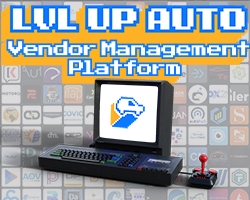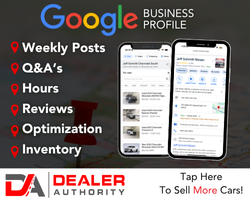BUYING A CRM: A MASSIVE DECISION, SIMPLIFIED
Buying a CRM is a massive undertaking. It takes a lot of research and requires knowing exactly what you want. Looking at a CRM demo represents your best chance to see how the system will work, and most importantly, how it will mesh with the way you run your dealership. Having sat through many a demo in his dealership days, Dealer.com’s Senior Director of Product Design and writer for DealerRefresh, Alex Snyder, offers his insights into what to look for when you’re sitting down for a CRM demo.
Chapter 1: CRM 101
What is a CRM system? Let’s start with the basics so we’re all on the same page. A Customer Relationship Management (CRM) system helps to keep you focused on your customers by enforcing process. In a nutshell, it’s a system that tells you “who to call and when to call them.” But when you look beyond those narrow constraints, a CRM system begins to get more sophisticated; it’s also a database of your customers that organizes their information in ways that aid in your marketing and decision-making efforts.
Chapter 2: Process
Now that we’ve got the basics out of the way, it’s time to talk about the most important aspect of CRM: Process. In order to sell more cars, get more service appointments and just generally get more customers visiting your dealership, it all boils down to good follow-up. This is where the needle gets moved. This is where you close the gap with your competitors. Because this is where CRM makes the difference. Don’t let anyone tell you different.
Chapter 3: Marketing
While process is king when it comes to the benefits of your CRM, marketing is still
a big piece of the pie. Every email sent, voicemail left, and phone call connected can be viewed as a marketing impression. Hopefully these one-to-one encounters leave a big impression on your customer.
Chapter 4: Decision-Making & Reporting
Sure, process is the core of a successful CRM system, but the reporting and decision- making aspects are where things start to get interesting. They are what fuel the tweaking and accountability of the processes. They complement one another, especially when they’re both done right and someone is overseeing everything. Unfortunately, variables such as faulty reports, lack of comprehension, and data corruption (duplicates, bad ad sources, etc.) can plague the accuracy of CRM reports.
Chapter 5: Marrying a CRM with Your Dealership
A CRM is an incredibly powerful piece of technology, and I’ve spent a lot of ink
so far in talking about what you should expect from a good system. That said, the success or failure of a CRM doesn’t lie solely with the tech company that developed it. The best CRM in the world can be undermined by a poor foundation. And that foundation is your dealership—how it behaves, how expectations are set, and how a dealership’s leaders make the most of the system.
Chapter 6: The Final Word
The biggest thing to remember when judging a demo and buying a CRM is to avoid getting distracted by the shiny bells and whistles, and instead focus on the core elements. At the end of the day, the features and screens that your people will use day in and day out are where you should judge a demo and a system. Everything else is just window dressing; the bells and whistles might be nice if they work but they won’t make or break your CRM. How readily it gets adopted by your staff, how useful it is to your managers and how much it ultimately moves the needle for your business is what matters.
Download your copy here! --> https://dlrfr.sh/buyCRM
*Don't forget to rate this resource!!
A collaboration between DealerRefresh and Dealer.com No matter how old this white-paper gets it remains true.
Contributors:
Alex Snyder, Senior Director of Product Design at Dealer.com and writer for DealerRefresh
Buying a CRM is a massive undertaking. It takes a lot of research and requires knowing exactly what you want. Looking at a CRM demo represents your best chance to see how the system will work, and most importantly, how it will mesh with the way you run your dealership. Having sat through many a demo in his dealership days, Dealer.com’s Senior Director of Product Design and writer for DealerRefresh, Alex Snyder, offers his insights into what to look for when you’re sitting down for a CRM demo.
Chapter 1: CRM 101
What is a CRM system? Let’s start with the basics so we’re all on the same page. A Customer Relationship Management (CRM) system helps to keep you focused on your customers by enforcing process. In a nutshell, it’s a system that tells you “who to call and when to call them.” But when you look beyond those narrow constraints, a CRM system begins to get more sophisticated; it’s also a database of your customers that organizes their information in ways that aid in your marketing and decision-making efforts.
Chapter 2: Process
Now that we’ve got the basics out of the way, it’s time to talk about the most important aspect of CRM: Process. In order to sell more cars, get more service appointments and just generally get more customers visiting your dealership, it all boils down to good follow-up. This is where the needle gets moved. This is where you close the gap with your competitors. Because this is where CRM makes the difference. Don’t let anyone tell you different.
Chapter 3: Marketing
While process is king when it comes to the benefits of your CRM, marketing is still
a big piece of the pie. Every email sent, voicemail left, and phone call connected can be viewed as a marketing impression. Hopefully these one-to-one encounters leave a big impression on your customer.
Chapter 4: Decision-Making & Reporting
Sure, process is the core of a successful CRM system, but the reporting and decision- making aspects are where things start to get interesting. They are what fuel the tweaking and accountability of the processes. They complement one another, especially when they’re both done right and someone is overseeing everything. Unfortunately, variables such as faulty reports, lack of comprehension, and data corruption (duplicates, bad ad sources, etc.) can plague the accuracy of CRM reports.
Chapter 5: Marrying a CRM with Your Dealership
A CRM is an incredibly powerful piece of technology, and I’ve spent a lot of ink
so far in talking about what you should expect from a good system. That said, the success or failure of a CRM doesn’t lie solely with the tech company that developed it. The best CRM in the world can be undermined by a poor foundation. And that foundation is your dealership—how it behaves, how expectations are set, and how a dealership’s leaders make the most of the system.
Chapter 6: The Final Word
The biggest thing to remember when judging a demo and buying a CRM is to avoid getting distracted by the shiny bells and whistles, and instead focus on the core elements. At the end of the day, the features and screens that your people will use day in and day out are where you should judge a demo and a system. Everything else is just window dressing; the bells and whistles might be nice if they work but they won’t make or break your CRM. How readily it gets adopted by your staff, how useful it is to your managers and how much it ultimately moves the needle for your business is what matters.
Download your copy here! --> https://dlrfr.sh/buyCRM
*Don't forget to rate this resource!!
A collaboration between DealerRefresh and Dealer.com No matter how old this white-paper gets it remains true.
Contributors:
Alex Snyder, Senior Director of Product Design at Dealer.com and writer for DealerRefresh







